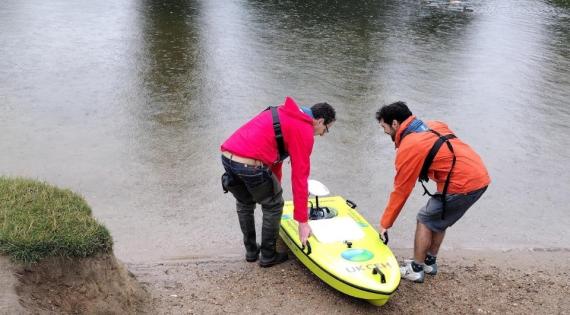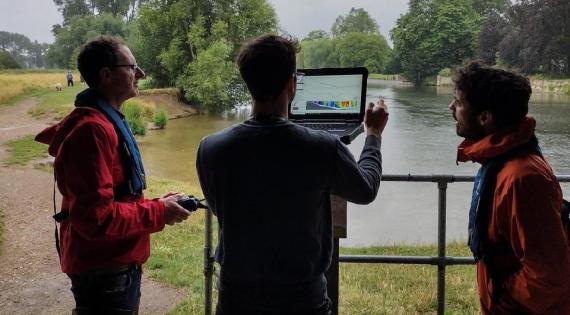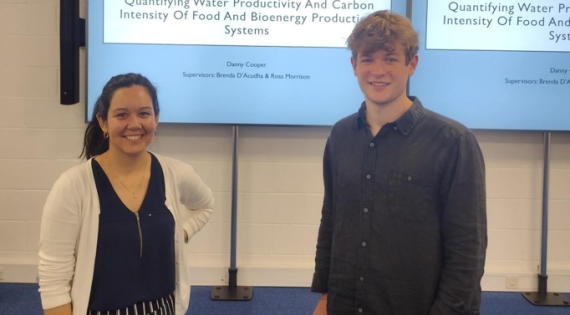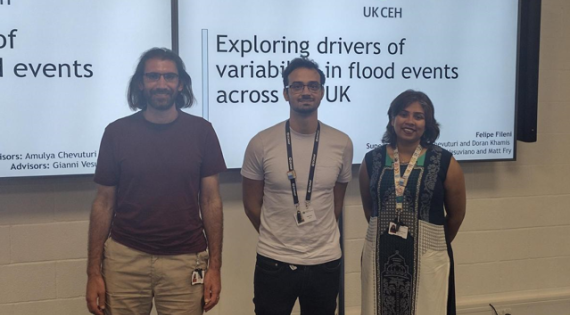 The Hydro-JULES Internship 2024 programme
The Hydro-JULES Internship 2024 programme
The Hydro-JULES intern 2024 programme is now CLOSED.
What is the Hydro-JULES Internship Programme?
The Hydro-JULES intern programme offers students from hydrology and environmental science backgrounds the opportunity to gain hands-on experience working at UKCEH alongside a diverse and collaborative team of Hydro-JULES scientists.
Applicants were invited to apply to six research projects. The successful applicants from the universities shown below will have the unique opportunity to contribute to significant scientific advancements while advancing their own academic and professional careers.




